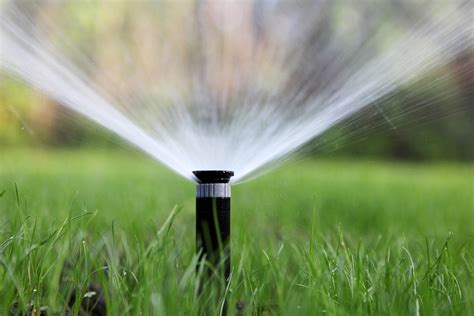The importance of water conservation cannot be overstated, especially in today's world where water scarcity is a pressing concern. One of the most effective ways to save water is through the use of irrigation technology. Irrigation tech has revolutionized the way we manage water resources, making it possible to optimize water usage and reduce waste. In this article, we will explore 7 ways irrigation tech saves water, and how it can benefit farmers, gardeners, and the environment.
1. Precision Irrigation

Precision irrigation is a game-changer in water conservation. This technology uses sensors and GPS to detect soil moisture levels, temperature, and crop water requirements. By providing real-time data, farmers can optimize water application, reducing waste and ensuring that crops receive the right amount of water. According to the United States Department of Agriculture (USDA), precision irrigation can save up to 20% of water compared to traditional irrigation methods.
Benefits of Precision Irrigation
• Improved crop yields • Reduced water waste • Increased efficiency • Better decision-making
2. Drip Irrigation

Drip irrigation is a type of micro-irrigation that delivers water directly to the roots of plants, reducing evaporation and runoff. This method is particularly effective in water-scarce regions, as it minimizes water waste and ensures that plants receive the right amount of water. According to the International Water Association (IWA), drip irrigation can save up to 50% of water compared to traditional flood irrigation.
Benefits of Drip Irrigation
• Reduced water waste • Improved crop yields • Increased efficiency • Better soil health
3. Smart Controllers

Smart controllers are advanced irrigation systems that use sensors and weather data to optimize water application. These controllers can detect soil moisture levels, temperature, and humidity, adjusting water application accordingly. According to the Irrigation Association, smart controllers can save up to 30% of water compared to traditional irrigation controllers.
Benefits of Smart Controllers
• Improved efficiency • Reduced water waste • Increased crop yields • Better decision-making
4. Soil Moisture Sensors

Soil moisture sensors are devices that measure soil moisture levels, providing real-time data to farmers and gardeners. By monitoring soil moisture levels, users can optimize water application, reducing waste and ensuring that crops receive the right amount of water. According to the National Oceanic and Atmospheric Administration (NOAA), soil moisture sensors can save up to 20% of water compared to traditional irrigation methods.
Benefits of Soil Moisture Sensors
• Improved efficiency • Reduced water waste • Increased crop yields • Better decision-making
5. Rain Sensors

Rain sensors are devices that detect rainfall, adjusting irrigation systems accordingly. By monitoring rainfall, users can optimize water application, reducing waste and ensuring that crops receive the right amount of water. According to the Environmental Protection Agency (EPA), rain sensors can save up to 10% of water compared to traditional irrigation methods.
Benefits of Rain Sensors
• Reduced water waste • Improved efficiency • Increased crop yields • Better decision-making
6. Weather-Based Irrigation

Weather-based irrigation systems use weather data to optimize water application. By monitoring temperature, humidity, and wind speed, users can adjust irrigation systems accordingly, reducing waste and ensuring that crops receive the right amount of water. According to the University of California, weather-based irrigation systems can save up to 20% of water compared to traditional irrigation methods.
Benefits of Weather-Based Irrigation
• Improved efficiency • Reduced water waste • Increased crop yields • Better decision-making
7. Irrigation Automation

Irrigation automation involves the use of software and hardware to control irrigation systems. By automating irrigation systems, users can optimize water application, reducing waste and ensuring that crops receive the right amount of water. According to the Irrigation Association, irrigation automation can save up to 15% of water compared to traditional irrigation methods.
Benefits of Irrigation Automation
• Improved efficiency • Reduced water waste • Increased crop yields • Better decision-making
Gallery of Irrigation Technology






What is precision irrigation?
+Precision irrigation is a type of irrigation that uses sensors and GPS to detect soil moisture levels, temperature, and crop water requirements. This technology optimizes water application, reducing waste and ensuring that crops receive the right amount of water.
What are the benefits of drip irrigation?
+Drip irrigation reduces water waste, improves crop yields, increases efficiency, and promotes better soil health.
How does weather-based irrigation work?
+Weather-based irrigation systems use weather data to optimize water application. By monitoring temperature, humidity, and wind speed, users can adjust irrigation systems accordingly, reducing waste and ensuring that crops receive the right amount of water.
By adopting irrigation technology, farmers, gardeners, and the environment can benefit from reduced water waste, improved efficiency, and increased crop yields. Whether it's precision irrigation, drip irrigation, or weather-based irrigation, these technologies are revolutionizing the way we manage water resources. Share your thoughts on the importance of irrigation technology in the comments below!
